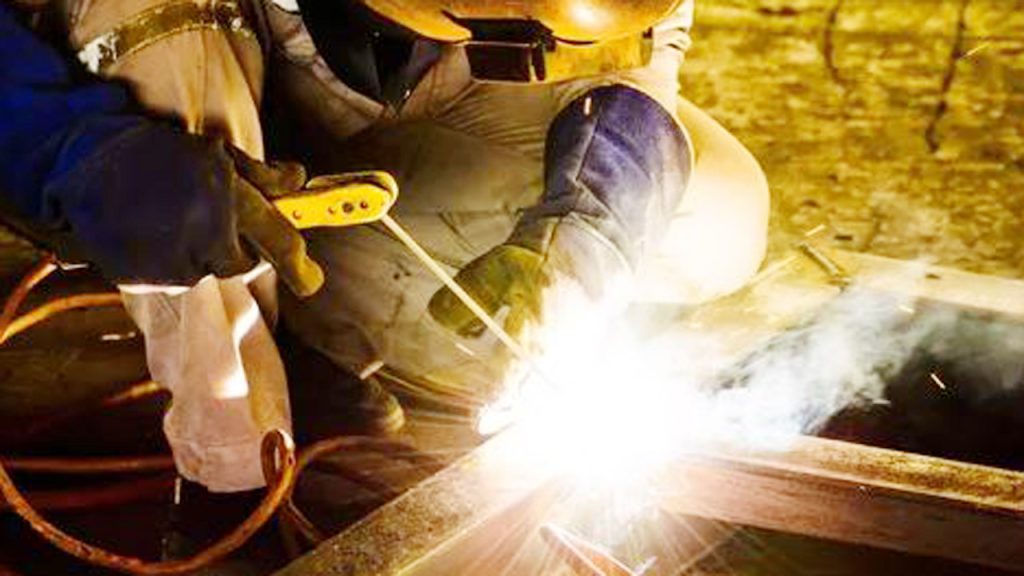When I first considered welding as a career, I had one big question in mind: Can this job make me a good living? And let me tell you, welding has proven to be a profitable career for many, with some welders even earning six figures.
If you’re drawn to the idea of working with your hands, enjoying the creative side of the trade, or simply wanting to know if it’s worth the effort, you’ve come to the right place.
Let’s dive into whether welding can bring in $100k or more, what makes it a profitable career, and the best strategies to maximize your income as a welder.

Is It Possible for a Welder to Make $100k?
Yes, it’s absolutely possible for a welder to earn $100k annually, but it depends on a few factors. Specialization, experience, certifications, and willingness to take on demanding projects play a big role in achieving this income.
Specialized Welding Jobs
The welders making $100k often work in specialized areas. Here are some high-paying welding roles:
| Specialization | Potential Earnings |
|---|---|
| Underwater Welding | $80,000 to $200,000 annually |
| Pipeline Welding | $70,000 to $120,000 annually |
| Aerospace Welding | $50,000 to $100,000 annually |
| Military Support Welding | $100,000+ with experience |
| Rig Welding (Oil & Gas) | $100,000 to $200,000 annually |
These specialized roles often come with unique challenges, like working in remote locations or harsh environments, but the financial rewards can be significant.
What Makes Welding a Profitable Career?
Welding is one of those careers where your income grows with your skill set and experience. Here’s why it’s a profitable career path:
High Demand Across Industries
From construction to aerospace, industries rely heavily on welders. Skilled welders are in high demand, which drives wages upward, especially for specialized roles.
Room for Growth and Advancement
Welding is a skill that opens doors to various career paths. You can start with basic welding and advance to roles like welding inspector, supervisor, or instructor, which typically come with higher pay.
Opportunities for Entrepreneurship
Welding also lends itself well to starting your own business. You can create custom metalworks, repair services, or even teach welding courses. Many welders make six figures running their own operations.
Overtime and Hazard Pay
Many welding jobs offer overtime pay, which can significantly increase your earnings. In high-risk jobs like underwater welding or oil rig work, hazard pay is often included.
Factors That Influence Welding Income
While it’s possible to make $100k as a welder, your income depends on a combination of factors.
Experience Level
Entry-level welders typically earn around $30,000 to $50,000 annually. However, with experience and certifications, you can climb the ladder to six figures.
Certifications and Skills
Certifications are key to unlocking higher-paying jobs. Here are some valuable certifications:
| Certification | Purpose |
|---|---|
| Certified Welder (CW) | Validates basic welding skills |
| Certified Welding Inspector (CWI) | Opens opportunities in quality control |
| Specialized Certifications | Focus on niche areas like underwater welding or TIG welding |
Job Location
Welding salaries can vary significantly depending on where you work. For instance, states like Alaska, Texas, and California tend to offer higher wages due to demand and cost of living.
Willingness to Travel
Traveling for welding jobs, especially in industries like pipeline construction or offshore oil rigs, often comes with higher pay.
Path to Making $100k as a Welder
Achieving six figures in welding isn’t easy, but it’s attainable with the right approach.
Choose a High-Paying Specialty
Specializing in areas like underwater welding, pipeline welding, or aerospace welding is a surefire way to boost your earnings.
Invest in Education and Training
The more skilled you are, the more valuable you become. Enroll in advanced welding programs, take certification exams, and learn new techniques to stand out in the field.
Gain Practical Experience
Hands-on experience is crucial in welding. Seek internships, apprenticeships, or entry-level jobs to build your portfolio and learn from seasoned professionals.
Be Willing to Relocate or Travel
Many high-paying welding jobs require you to work in remote locations or travel frequently. If you’re open to this lifestyle, your earning potential increases significantly.
Network and Build a Reputation
Welding is a tight-knit community. Building relationships with others in the industry can lead to better job opportunities and higher-paying gigs.
Pros and Cons of Welding as a Career
Like any job, welding has its ups and downs.
Pros
- High Earning Potential: Skilled welders can earn six figures.
- Job Security: Welding is always in demand.
- Career Flexibility: Opportunities to work across various industries.
- Creativity and Satisfaction: The ability to create and repair tangible products.
Cons
- Physical Demands: Welding can be physically taxing and involve long hours.
- Health Risks: Exposure to fumes, burns, and other hazards.
- Challenging Work Environments: Some roles require working in extreme conditions.
Is Welding Right for You?
If you enjoy working with your hands, have a passion for creating, and don’t mind a bit of hard work, welding could be the perfect career for you. The trade offers a unique blend of stability, creativity, and financial reward.
For those willing to go the extra mile, such as taking on specialized roles or traveling for work, welding can be a highly profitable career path.
Conclusion
So, can a welder make $100k? Without a doubt, the answer is yes. With the right skills, certifications, and determination, welding can be a lucrative and fulfilling career. It’s not just about the money, though. Welding offers the chance to create, problem-solve, and contribute to projects that shape the world around us.
If you’re considering welding as a career, start with training and certifications, explore high-paying specialties, and be ready to seize opportunities wherever they arise. Welding might just be your path to financial freedom and job satisfaction.
FAQs
What type of welding pays the most?
Specializations like underwater welding, pipeline welding, and rig welding typically offer the highest salaries.
Do welders make good money right away?
Entry-level welders can earn between $30,000 and $50,000 annually, but income grows significantly with experience and specialization.
Is welding a hard career to pursue?
Welding requires training and practice, but with dedication, it’s a highly rewarding and accessible career.
Do you need a college degree to become a welder?
No, you don’t need a college degree. A vocational program or trade school certification is typically enough to start.
Is welding a dangerous job?
Welding has risks, but with proper training, protective equipment, and safety precautions, these can be minimized.

Endow Russel the owner chief editor of giftendow.com . I am a mechanical engineer and assign to an local firm with much experience in welding and industrial equipment.

